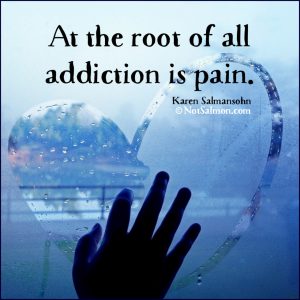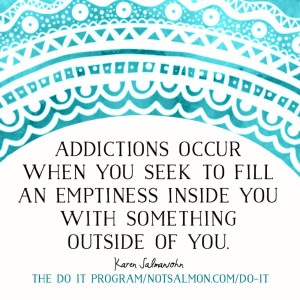 Addiction recovery is a process that involves addressing physical and psychological dependence on drugs or alcohol.
Addiction recovery is a process that involves addressing physical and psychological dependence on drugs or alcohol.
This process can be complex and challenging, but it is possible with the right treatment and support.
I’m writing this article because I am a bestselling author with about 2 million books sold globally.
Plus I founded a groundbreaking video course called The Anxiety Cure.
I love sharing insights and strategies to help people to overcome their challenges.
With this in mind I put together this guide on addiction recovery, to help you to understand the process and treatments
Coming up we will discuss the different types of substances that can be treated. Plus we will explore the differences between heroin and fentanyl.
Types of Substances That Can Be Treated
Addiction recovery can be applied to various substances, including:
- drugs
- alcohol
- prescription medications
Some of the most common drugs that are treated in addiction recovery include
- opioids, such as heroin and fentanyl
- stimulants like cocaine and methamphetamine
- depressants like benzodiazepines and barbiturates
Alcohol addiction is also a common reason for seeking addiction recovery treatment. It is estimated that 14.1 million adults in the United States have an alcohol use disorder, and many of them require treatment to overcome their addiction.
Differences Between Heroin and Fentanyl
Heroin and fentanyl are two powerful opioids that have been responsible for a significant increase in overdose deaths in recent years.
- Heroin is a naturally occurring substance that is made from morphine.
- Fentanyl is a synthetic opioid that is up to 100 times stronger than morphine.
One of the key differences between fentanyl and heroin is their potency. Fentanyl is much more potent than heroin. Meaning? Even a small amount can be deadly.
Fentanyl is often added to other drugs like heroin and cocaine, which increases the risk of overdose.
- Heroin is typically injected, smoked, or snorted.
- Fentanyl can be prescribed as a transdermal patch or nasal spray.
Addiction Recovery Process
 Addiction recovery is a process that typically involves several stages. These stages include:
Addiction recovery is a process that typically involves several stages. These stages include:
- Detoxification: This is the first step in addiction recovery. It involves the process of removing the substance from the body. And it can be a challenging and uncomfortable process, as the body can experience withdrawal symptoms.
- Inpatient or Outpatient Treatment: After detoxification, many people enter inpatient or outpatient treatment. Inpatient treatment involves living at a treatment facility for a period of time and receiving around-the-clock care. Outpatient treatment involves attending treatment sessions while still living at home.
- Medication-Assisted Treatment (MAT): Medications like methadone, buprenorphine, and naltrexone can be used to manage withdrawal symptoms and cravings during addiction recovery.
- Behavioral Therapy: Behavioral therapy involves working with a therapist or counselor to identify the underlying causes of addiction and develop coping skills and strategies to manage triggers and cravings.
- Support Groups: Support groups like Alcoholics Anonymous or Narcotics Anonymous can provide a sense of community and support from others who have gone through similar experiences.
Treatment Options for Addiction Recovery
 There are various treatment options available for addiction recovery. These options include:
There are various treatment options available for addiction recovery. These options include:
- Inpatient Treatment: Inpatient treatment involves living at a treatment facility for a period of time and receiving around-the-clock care. This option is typically best for those with severe addiction or co-occurring mental health disorders.
- Outpatient Treatment: Outpatient treatment involves attending treatment sessions while still living at home. This option is typically best for those with a mild to moderate addiction who have a strong support system at home.
- Medication-Assisted Treatment (MAT): Medications like methadone, buprenorphine, and naltrexone can be used to manage withdrawal symptoms and cravings during addiction recovery. This option is typically used in combination with behavioral therapy.
- Behavioral Therapy: Behavioral therapy involves working with a therapist or counselor to identify the underlying causes of addiction and develop coping skills and strategies to manage triggers and cravings. There are several types of behavioral therapy, including cognitive-behavioral therapy (CBT), dialectical behavior therapy (DBT), and motivational interviewing (MI).
- Support Groups: Support groups like Alcoholics Anonymous or Narcotics Anonymous can provide a sense of community and support from others who have gone through similar experiences. These groups can be an important source of support and motivation for those in addiction recovery.
- Holistic Therapies: Holistic therapies like yoga, meditation, and acupuncture can be used to complement traditional addiction recovery treatments. These therapies can help reduce stress and anxiety and promote overall well-being.
- Aftercare: Aftercare involves ongoing support and treatment after completing a formal addiction recovery program. This can include support groups, counseling, and medication management.
It’s important to note that addiction recovery is not a one-size-fits-all process. Different individuals may require different treatments based on their needs. It’s important to work with a qualified addiction recovery professional to determine the best treatment.
Conclusion
Addiction recovery is a complex and challenging process. It requires commitment, support, and ongoing treatment. You need to understand the different types of substances that can be treated. Plus you need to know the differences between heroin and fentanyl. This knowledge can help people to make more informed decisions about treatments.
Effective addiction recovery typically involves a combination of medication-assisted treatment (MAT), behavioral therapy, and support groups. In addition, holistic therapies like yoga and meditation can be used to complement traditional treatments.
It’s important to remember that addiction is a chronic disease that requires ongoing management and support. With the right treatment and resources, however, addiction recovery is possible, and individuals can go on to lead healthy, fulfilling lives.
Stay Calm During Challenging Times
Explore my therapist recommended online program called The Anxiety Cure to learn how to stay calm – no matter the chaos you’re dealing with!
P.S. Before you zip off to your next Internet pit stop, check out these 2 game changers below - that could dramatically upscale your life.
1. Check Out My Book On Enjoying A Well-Lived Life: It’s called "Your To Die For Life: How to Maximize Joy and Minimize Regret Before Your Time Runs Out." Think of it as your life’s manual to cranking up the volume on joy, meaning, and connection. Learn more here.
2. Life Review Therapy - What if you could get a clear picture of where you are versus where you want to be, and find out exactly why you’re not there yet? That’s what Life Review Therapy is all about.. If you’re serious about transforming your life, let’s talk. Book a FREE consult call here.
Think happier. Think calmer.
Think about subscribing for free weekly tools here.
No SPAM, ever! Read the Privacy Policy for more information.
One last step!
Please go to your inbox and click the confirmation link we just emailed you so you can start to get your free weekly NotSalmon Happiness Tools! Plus, you’ll immediately receive a chunklette of Karen’s bestselling Bounce Back Book!


 Addiction recovery is a process that involves addressing physical and psychological dependence on drugs or alcohol.
Addiction recovery is a process that involves addressing physical and psychological dependence on drugs or alcohol. Addiction recovery is a process that typically involves several stages. These stages include:
Addiction recovery is a process that typically involves several stages. These stages include: There are various treatment options available for addiction recovery. These options include:
There are various treatment options available for addiction recovery. These options include: